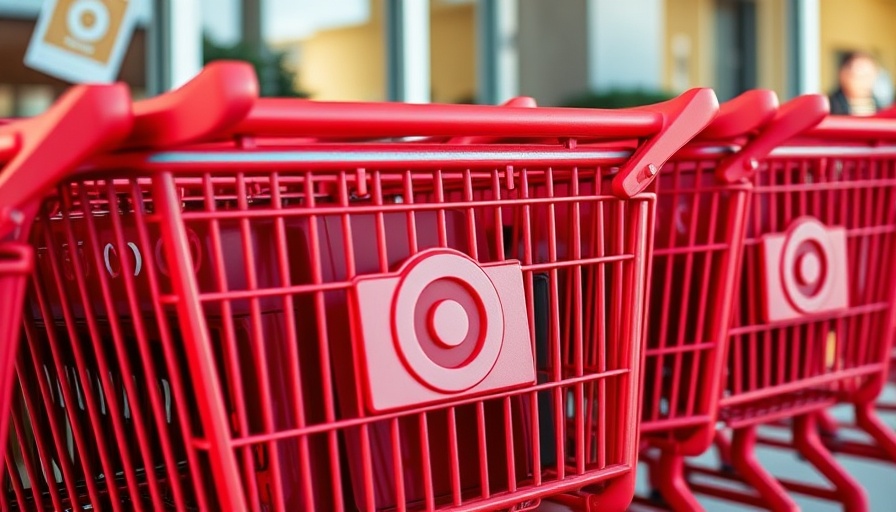
Target's Dwindling Foot Traffic: A Wake-up Call for Retail
Target's retreat from diversity, equity, and inclusion (DEI) initiatives has triggered significant backlash, resulting in dwindling foot traffic and a tarnished reputation. Reports show that the retail giant has experienced a continuous decline in store visits over four consecutive months, with a notable 9% drop in February alone.
In a market where competitors like Walmart and Costco have thrived, Target's decision to step back from its previously robust DEI programs is raising alarms in the Black community. Activists, civil rights groups, and concerned consumers are now mobilizing against the retailer's actions, echoing the sentiment that this move sends a disheartening message to Black Americans across the nation.
A Growing Disconnect: The Backlash Against Target
Dr. Benjamin F. Chavis Jr., CEO of the National Newspaper Publishers Association (NNPA), emphasized the importance of this issue for over 50 million African American consumers, stating that “this has raised a red flag for Black America.” The NNPA is not alone in this concern; a selective buying campaign initiated by Rev. Jamal Bryant, known as the “Target Fast,” has garnered nearly 200,000 supporters in response to Target’s recent actions.
The NAACP weighed in with a consumer advisory, citing Target's broken promises on racial equity and a lack of accountability. Public sentiment sways heavily against the retailer, indicating a critical need for engagement and understanding towards Black consumers.
Understanding the Impact of DEI Decisions
Target’s decisions have tangible effects on its performance—data reveals a 3.8% drop in comparable in-store sales during Q1 of 2025. Patricia Williams-Dillard, publisher of the Minnesota Spokesman-Recorder, critiqued the timing of the company's actions, labeling it as a “slap in the face” to those who have supported the chain throughout its growth.
Moreover, customer loyalty has shown signs of deteriorating as the company’s Integrity and Leadership Scores fell from 65 to 58---a staggering drop that reflects consumer disapproval. The Recommendation Rate plummeted nearly 25% just between January and May, accentuating that shoppers are indeed voicing their concerns through their spending choices.
The Broader Implications for Retail
This leaves us questioning the future of retail in a progressively diverse market. As companies aim for inclusivity, they must understand the connection between values and consumer behavior. As explained by Bobby Henry, chairman of the NNPA, “when companies pull back, we must do the same.”
The situation invites a broader conversation within the retail industry on the necessity of true commitment to diversity. Companies willing to listen and learn from their consumer base will likely reap rewards, while those who ignore the signs may find themselves facing sustained backlash.
Creating Positive Change: What’s Next?
The potential for reconciliation and rebuilding trust exists, but it requires honest dialogue with consumers. Target and similar companies must reassess their course and recommit to DEI initiatives that not only elevate their brand but create meaningful connections within their communities.
As shoppers continue to shift their purchasing power based on the alignment of company values and social dynamics, it’s imperative for companies to prioritize long-term investments in diversity. The results can foster a sense of belonging for all consumers—a vital achievement in today’s diverse marketplace.
In Conclusion: Time for Action
The message from Black consumers is crystal clear: they want authentic engagement from brands. The situation facing Target serves as a reminder to all companies about the implications of withdrawing from DEI commitments. It’s time for retailers to reconnect, listen, and invest in their community in order to thrive in an evolving society.
As you engage with brands, make your voice heard. Your spending choices speak volumes and can advocate for the values you believe in.
 Add Row
Add Row  Add
Add 




 Add Row
Add Row  Add
Add 

Write A Comment